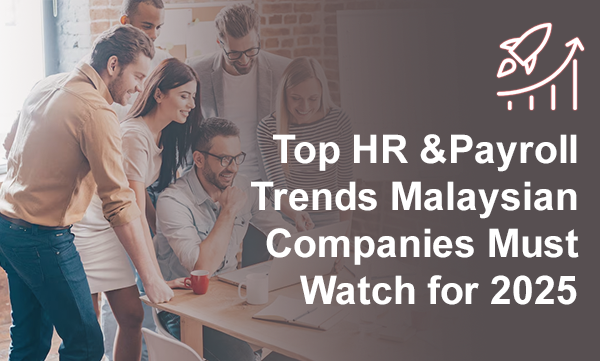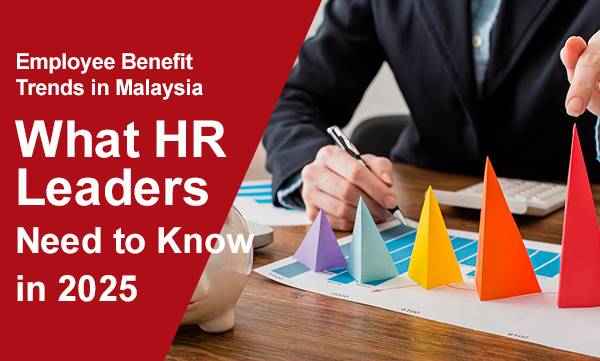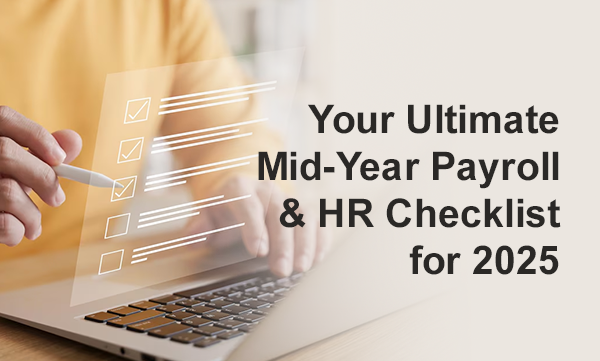
Top HR and Payroll Trends Malaysian Companies Must Watch for 2025
Top HR and Payroll Trends Malaysian Companies Must Watch for 2025
The way businesses handle HR and payroll in Malaysia is changing rapidly. With new technologies, evolving compliance requirements, and shifting workforce expectations, companies must adapt or risk falling behind. Whether you're an SME or a large enterprise, staying informed about the latest payroll trends in Malaysia is key to maintaining efficiency and compliance.
In 2025, several trends are shaping how Malaysian companies manage their workforce and payroll processes. Here’s what to watch — and how it can impact your business.
1. Payroll Automation in Malaysia Is Now Essential
Gone are the days when manual payroll processing could keep up with compliance demands and business growth. More Malaysian businesses are adopting automated HR & payroll systems to reduce errors, ensure accurate statutory contributions (EPF, SOCSO, EIS), and save time.
A report by Deloitte highlights that automation reduces payroll errors by up to 80%. For Malaysian companies navigating frequent regulatory updates, automation isn't just a convenience — it’s a compliance safeguard.
Looking to automate? Explore HR2eazy’s payroll automation features designed specifically for Malaysian businesses.
2. Cloud-Based HR Software Dominates the Malaysian Market
As remote work and flexible arrangements become standard, cloud HR and payroll solutions in Malaysia are seeing widespread adoption. Cloud platforms offer real-time access, better data security, and seamless integration with other business tools.
Malaysian SMEs and enterprises alike are moving to cloud-based payroll to improve flexibility while ensuring compliance with local laws like the Personal Data Protection Act (PDPA).
3. Compliance and Data Privacy Take Centre Stage
With Malaysia enforcing stricter data privacy laws under the PDPA, businesses must ensure their HR software in Malaysia handles sensitive employee data securely. Payroll data — including salaries, tax info, and personal identification — is a prime target for breaches if not properly managed.
Modern payroll systems now include built-in compliance features, encryption, and automated updates aligned with LHDN, EPF, and SOCSO regulations — helping businesses avoid costly penalties.
4. Digital Salary Payments & E-Wallets on the Rise
The shift towards a cashless economy in Malaysia is influencing how salaries are paid, especially for companies managing foreign workers or unbanked employees. Integration of e-wallets like Merchantrade with payroll systems is becoming a standard practic
Digital payments reduce administrative costs, speed up salary disbursements, and align businesses with Malaysia’s financial digitalization goals.
If your company hasn’t explored digital payroll disbursement yet, 2025 is the year to start.
5. AI and Payroll Analytics Transforming HR in Malaysia
Artificial Intelligence is now embedded in leading HR software in Malaysia , offering predictive analytics, automated payroll anomaly detection, and smarter workforce planning.
Digital payments reduce administrative costs, speed up salary disbursements, and align businesses with Malaysia’s financial digitalization goals.
If your company hasn’t explored digital payroll disbursement yet, 2025 is the year to start.
6. Employee Self-Service Portals Enhance Experience
Employees in Malaysia now expect transparency and control over their payroll and HR data. Self-service portals allow staff to download payslips, apply for leave, and update personal details without involving HR teams for every minor request.
This trend not only improves employee satisfaction but also reduces administrative workload, allowing HR teams to focus on strategic tasks.
Conclusion: Why Malaysian Businesses Must Embrace HR & Payroll Transformation
The future of HR and payroll in Malaysia is digital, automated, and employee-centric. Companies that adapt to these trends will benefit from improved compliance, reduced operational costs, and a more engaged workforce.
If your business is still relying on outdated systems, now is the time to upgrade to a solution designed for Malaysia’s evolving payroll landscape.
Transform Your Payroll with HR2eazy
Stay compliant and efficient with HR2eazy’s cloud-based payroll solutions.
Our platform is built for Malaysian businesses — combining automation, compliance, and flexibility.
Contact us today to future-proof your HR and payroll operations.
Sources:
Deloitte Global Payroll Benchmarking
Malaysia PDPA Guidelines
Gartner Cloud Adoption Trends
PwC AI in Workforce Report


